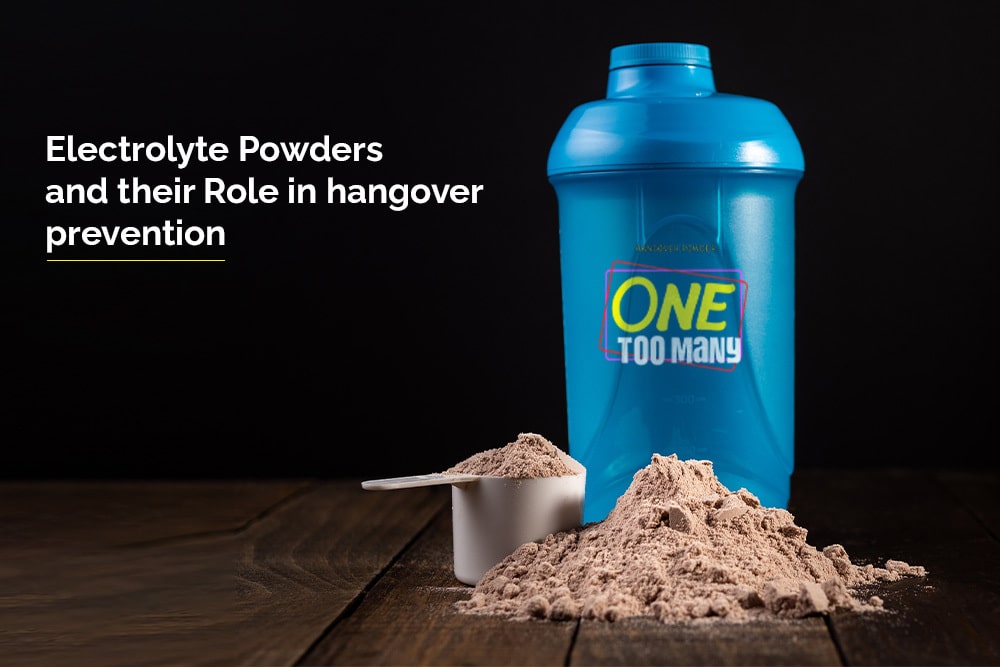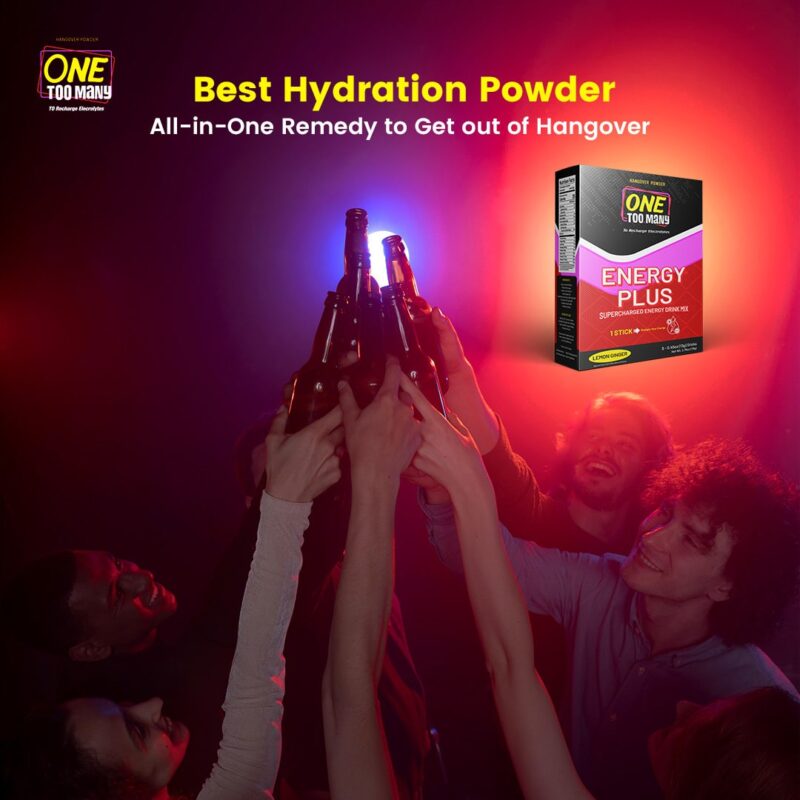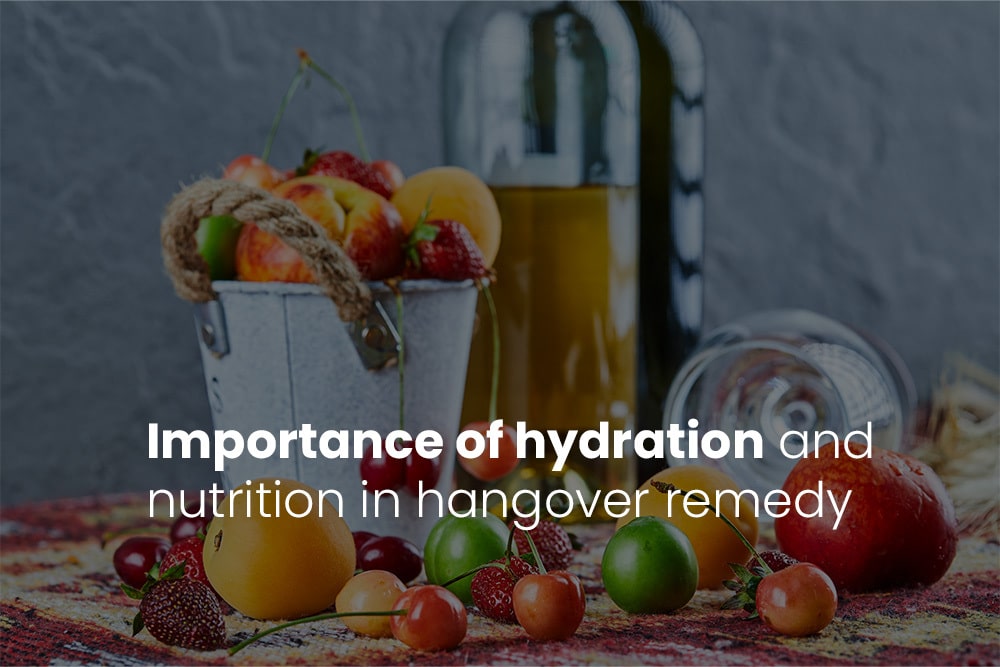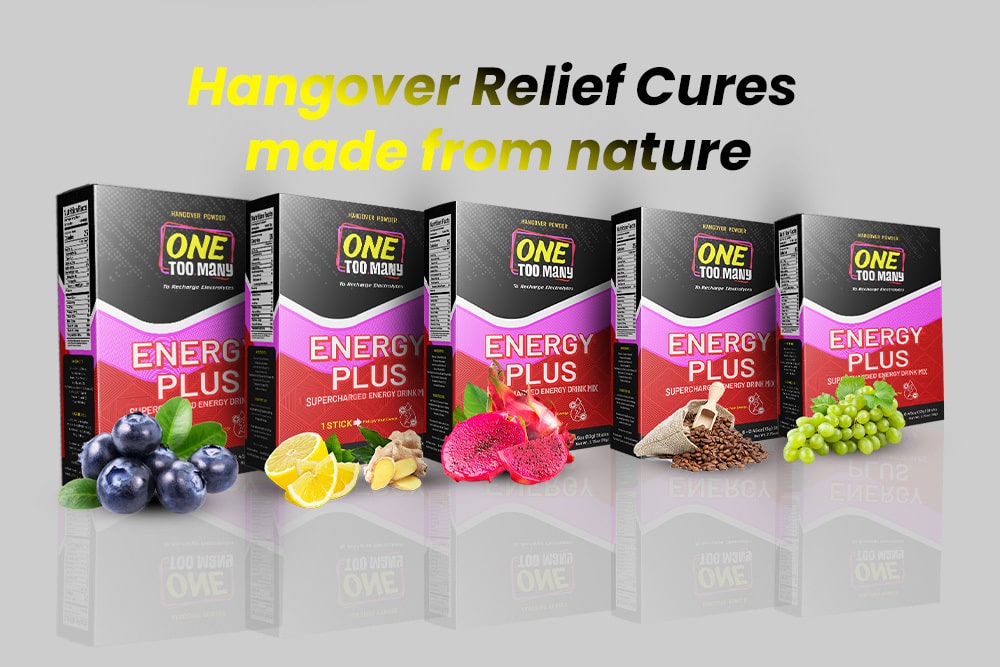Introduction
Electrolyte powder are powdered formulations designed to be mixed with water or other liquids to create a beverage that replenishes electrolytes. They are a convenient and portable option for those looking for hangover prevention and to maintain or restore electrolyte balance, particularly during increased physical activity, intense exercise, or dehydration.
Electrolyte Role in hangover prevention
Electrolytes play a significant role in hangover prevention by supporting hydration and restoring essential minerals lost during alcohol consumption. Alcohol is a diuretic that increases urine production, leading to dehydration. As a result, electrolyte levels can become imbalanced, contributing to hangover symptoms such as fatigue, headache, and muscle cramps. By replenishing electrolytes, particularly sodium, and potassium, individuals can help maintain proper fluid balance, support hydration, and mitigate the effects of dehydration caused by alcohol.
Electrolyte-rich beverages or supplements can aid in rehydrating the body, restoring electrolyte balance, and potentially reducing the severity of hangover symptoms. However, it’s important to note that while electrolytes can be helpful, there is no better way to obstruct a hangover than avoiding alcohol altogether or drinking it in small quantities.
Ten benefits of electrolyte powders other than hangover prevention

Fluid balance:
Electrolytes help regulate the body’s fluid balance by controlling water movement across cell membranes. This is vital for maintaining proper hydration.
Nerve function:
Electrolytes, such as sodium, potassium, and calcium, are essential for transmitting electrical impulses along nerves. They help ensure adequate nerve function, including muscle contractions and sensory perception.
Muscle function:
Electrolytes are necessary for muscle contraction and relaxation. They enable the muscles to contract efficiently during physical activity and prevent cramping.
PH balance:
Electrolytes, particularly bicarbonate ions, maintain the body’s acid-base balance. They help regulate the pH levels of bodily fluids, ensuring optimal physiological functioning.
Heart health:
Electrolytes like calcium, potassium, and magnesium are crucial in maintaining a healthy heart rhythm. They aid in regulating the heart’s electrical signals, preventing irregularities.
Energy production:
Electrolytes are involved in various metabolic processes, including producing and transferring energy within cells. They facilitate the function of enzymes that are essential for energy metabolism.
Nutrient absorption:
Electrolytes help reduce the absorption of nutrients in the digestive system. They assist in transporting nutrients across cell membranes, ensuring proper nutrient uptake by the body.
Kidney function:
Electrolytes, particularly sodium, potassium, and chloride, are critical in maintaining proper kidney function. They help regulate fluid balance and blood pressure and result in the elimination of waste products through urine.
Electrolyte balance during exercise:
Electrolytes are lost through sweat during physical activity. Replenishing these electrolytes is crucial to maintain hydration, prevent muscle cramps, and supporting optimal performance during exercise.
Cognitive function:
Electrolytes, such as magnesium, regulate neurotransmitter activity in the brain. Adequate electrolyte balance is necessary for optimal cognitive function, memory, and overall mental well-being.
Ten Electrolyte rich food and Drinks for Hangover Prevention and Other health benefits
Here are ten examples of electrolyte-rich foods and drinks:

Coconut water:
Coconut water is a natural source of electrolytes, including potassium, sodium, magnesium, and calcium. It is a refreshing beverage that can help replenish electrolytes after physical activity.
Bananas:
Bananas are rich in potassium, an essential electrolyte. They also contain minerals like magnesium and calcium, making them a healthy snack supporting electrolyte balance.
Spinach:
Spinach is a leafy green vegetable containing potassium, magnesium, and calcium electrolytes. Adding spinach to your meals can contribute to your electrolyte intake.
Oranges:
Oranges are a good source of electrolytes, particularly potassium. They also provide a natural source of hydration due to their high water content.
Yogurt:
Yogurt is rich in calcium and contains potassium and magnesium. Opt for plain or low-sugar varieties to maximize the electrolyte benefits.
Tomatoes:
Tomatoes are a source of potassium, calcium, and magnesium. Incorporating tomatoes into salads, sandwiches, or sauces can contribute to your electrolyte intake.
Watermelon:
Watermelon is hydrating and contains electrolytes like potassium and magnesium. It’s a refreshing fruit to enjoy during hot summer days.
Avocado:
Avocados are nutrient-dense fruit that provides electrolytes such as potassium and magnesium. They can be enjoyed in salads, spreads, or as a topping for various dishes.
Sports drinks:
Commercially available sports drinks often contain sodium, potassium, and magnesium electrolytes. These beverages are designed to replenish electrolytes lost during intense physical activity.
Broth or soup:
Homemade or low-sodium broth and stews can be rich in electrolytes, especially sodium. They can provide hydration and help restore electrolyte balance.
Conclusion
It’s important to note that while hangover powder can be beneficial, choosing high-quality products from reputable brands is essential. Be mindful of the sugar content, artificial additives, and other ingredients that may be included. As with any dietary supplement, it’s recommended to take professional advice to include electrolyte powder in your diet, especially if you have specific medical conditions or concerns.
For More Information








